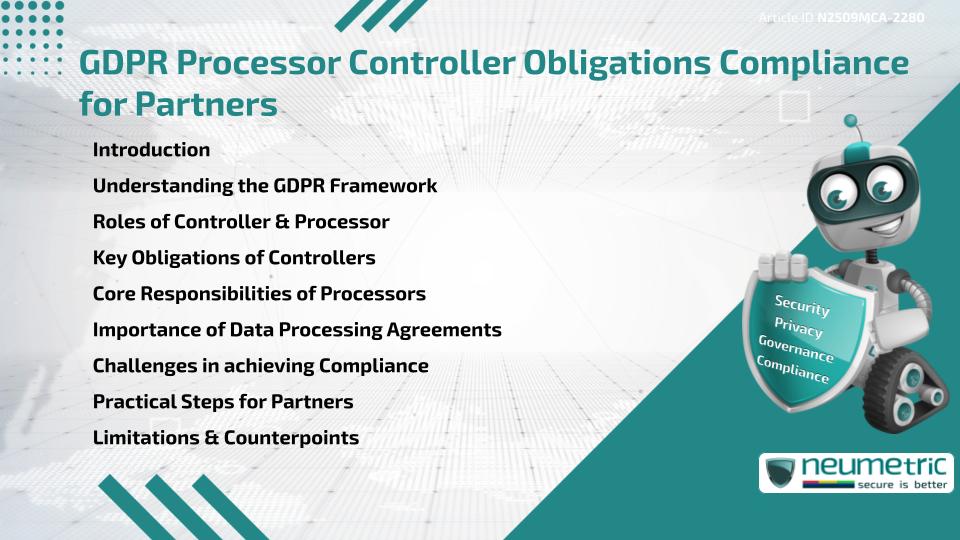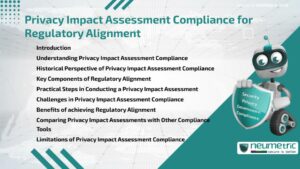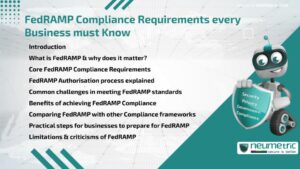Table of Contents
ToggleIntroduction
The term GDPR Processor Controller obligations Compliance refers to the rules & responsibilities under the General Data Protection Regulation [GDPR] that apply to both Data Controllers & Processors. Controllers determine how Personal Data is used, while Processors handle data on behalf of Controllers. Achieving Compliance requires clear Agreements, strict Accountability & Documented processes. Partners, such as Vendors or Third Party service providers, play a crucial role in maintaining Compliance. This article explains the Framework, roles, obligations & practical steps partners can take to ensure lawful & transparent data handling.
Understanding the GDPR Framework
The GDPR was introduced in 2018 to safeguard the rights of individuals across the European Union. It sets out strict requirements on how Personal Data must be collected, processed & stored. Unlike earlier Data Protection laws, GDPR enforces direct Accountability for both Controllers & Processors. Non-Compliance can lead to heavy fines & loss of Trust, making Compliance more than just a legal requirement.
Roles of Controller & Processor
A Controller decides why & how Personal Data is used. For example, an e-commerce company deciding to collect Customer Information for shipping & marketing purposes is a Controller.
A Processor, on the other hand, is any entity that processes data on behalf of the Controller, such as a cloud storage provider or a payment gateway.
The distinction between the two roles matters because obligations differ. Both must maintain records, uphold data subject rights & protect Data Security, but their specific responsibilities vary.
Key Obligations of Controllers
Controllers carry the primary responsibility for GDPR Processor Controller obligations Compliance. Their duties include:
- Ensuring lawful grounds for processing Personal Data.
- Informing individuals about how their data is used through transparent Privacy notices.
- Implementing Data Minimisation principles.
- Responding to subject access requests within one (1) month.
- Reporting Data Breaches to supervisory authorities within seventy-two (72) hours.
Controllers act as decision-makers & are Accountable even when they outsource data processing.
Core Responsibilities of Processors
Processors also have direct obligations under GDPR. They must:
- Process data only as instructed by the Controller.
- Maintain Records of all categories of processing activities.
- Implement Security Measures such as Encryption.
- Notify the Controller without undue delay in case of Data Breaches.
- Assist Controllers in meeting Data Subject rights.
Importantly, Processors can face fines independently if they fail to meet these obligations.
Importance of Data Processing Agreements
A central aspect of GDPR Processor Controller obligations Compliance is the data processing agreement [DPA]. This contract ensures that Processors handle data according to Controller instructions & GDPR requirements.
A proper DPA must cover:
- The subject & duration of processing.
- The type of Personal Data & categories of Data Subjects.
- Security Measures in place.
- Conditions for subcontracting processing tasks.
Without a valid DPA, both parties Risk non-Compliance.
Challenges in achieving Compliance
Achieving Compliance is not without obstacles. Common challenges include:
- Lack of Awareness among smaller Partners.
- Complex international data transfers.
- Limited resources to implement Security Measures.
- Conflicting interpretations of GDPR provisions.
These difficulties show why cooperation between Controllers & Processors is essential.
Practical Steps for Partners
Partners aiming for GDPR Processor Controller obligations Compliance should:
- Map all data flows to identify Controller-Processor relationships.
- Sign clear DPAs with all Third Party providers.
- Train staff on GDPR requirements.
- Conduct regular Audits of processing activities.
- Use Privacy by design & by default principles in systems.
Taking these steps not only reduces legal Risk but also enhances Customer Trust.
Limitations & Counterpoints
While GDPR sets a strong Framework, some limitations exist. For instance, interpretations may vary between EU member states, creating uncertainty. Additionally, the strict requirements may be burdensome for Small Businesses lacking resources. However, these challenges do not outweigh the importance of protecting Personal Data & building Trust with Customers.
Takeaways
- Controllers & Processors both have defined roles under GDPR.
- Compliance requires Contracts, Documentation & Accountability.
- Partners must take proactive steps to align with obligations.
- Challenges exist, but cooperation makes Compliance achievable.
FAQ
What is the main difference between a Controller & a Processor?
A Controller decides the purposes & means of processing, while a Processor acts on behalf of the Controller to carry out those instructions.
Do both Controllers & Processors have direct GDPR obligations?
Yes, both parties are accountable under GDPR, though their specific responsibilities differ.
Why is a data processing agreement important?
A DPA ensures that Processors act only under Controller instructions & that both parties meet GDPR standards.
Can Processors be fined directly for non-Compliance?
Yes, Processors can face penalties independently if they fail to meet their GDPR responsibilities.
How quickly must data breaches be reported?
Controllers must notify supervisory authorities within seventy-two (72) hours of becoming aware of a Breach.
What challenges do smaller partners face in Compliance?
They often struggle with limited resources, lack of expertise & complex international data transfers.
How can partners improve Compliance efforts?
They can map data flows, sign proper Agreements, Train Staff & conduct Audits regularly.
Need help for Security, Privacy, Governance & VAPT?
Neumetric provides organisations the necessary help to achieve their Cybersecurity, Compliance, Governance, Privacy, Certifications & Pentesting needs.
Organisations & Businesses, specifically those which provide SaaS & AI Solutions in the Fintech, BFSI & other regulated sectors, usually need a Cybersecurity Partner for meeting & maintaining the ongoing Security & Privacy needs & requirements of their Enterprise Clients & Privacy conscious Customers.
SOC 2, ISO 27001, ISO 42001, NIST, HIPAA, HECVAT, EU GDPR are some of the Frameworks that are served by Fusion – a SaaS, multimodular, multitenant, centralised, automated, Cybersecurity & Compliance Management system.
Neumetric also provides Expert Services for technical security which covers VAPT for Web Applications, APIs, iOS & Android Mobile Apps, Security Testing for AWS & other Cloud Environments & Cloud Infrastructure & other similar scopes.
Reach out to us by Email or filling out the Contact Form…





